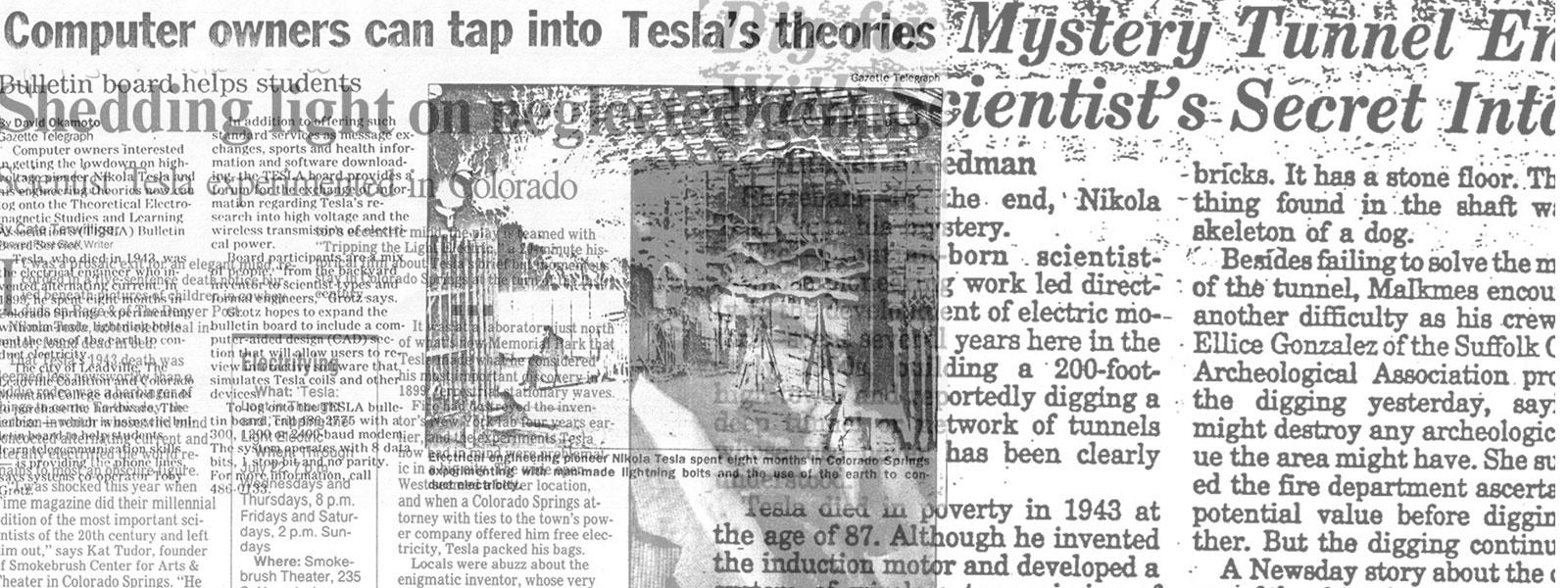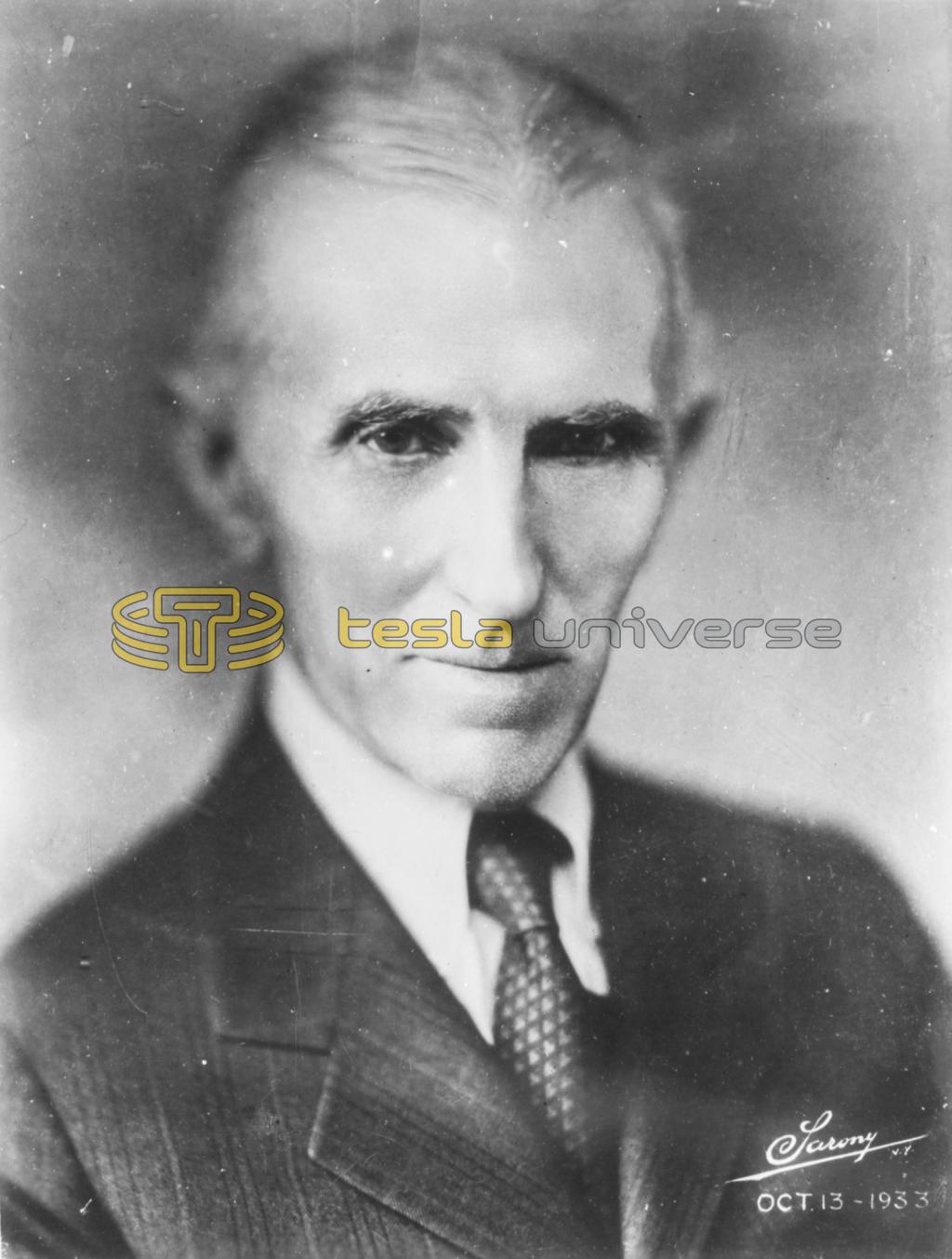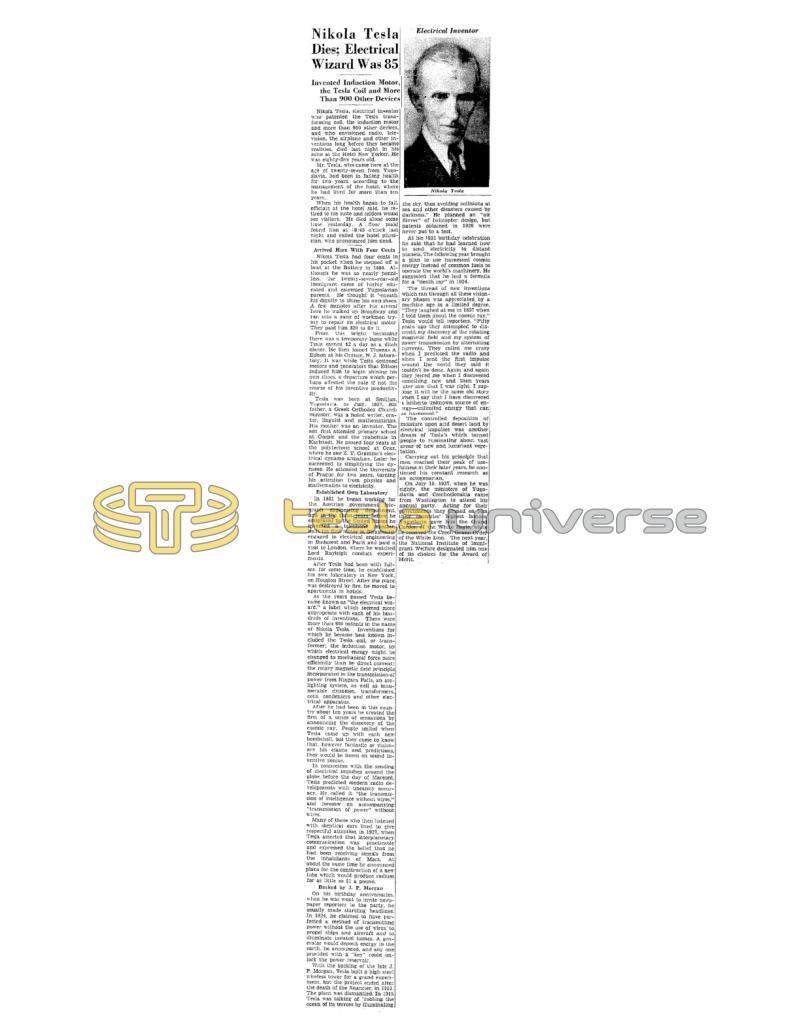
Nikola Tesla Articles
Nikola Tesla Dies; Electrical Wizard Was 85
Invented Induction Motor, the Tesla Coil and More Than 900 Other Devices
Nikola Tesla, electrical inventor who patented the Tesla transforming coil, the induction motor and more than 900 other devices, and who envisioned radio, television, the airplane and other inventions long before they became realities, died last night in his suite at the Hotel New Yorker. He was eighty-five years old.
Mr. Tesla, who came here at the age of twenty-seven from Yugoslavia. had been in failing health for two years, according to the management of the hotel, wherei he had lived for more than ten years.
When his health began to fail, officials at the hotel said, he retired to his suite and seldom would see visitors. He died alone some time yesterday. A floor maid found him at 10:45 o'clock last night and called the hotel physician, who pronounced him dead.
Arrived Here With Four Cents
Nikola Tesla had four cents in his pocket when he stepped off a boat at the Battery in 1884. Although he was so nearly penniless, the twenty-seven-year-old immigrant came of highly educated and esteemed Yugoslavian parents. He thought it beneath his nity to shine his own shoes. A few minutes after his arrival here he walked up Broadway and ran into a gang of workmen trying to repair an electrical motor They paid him $20 to fix it.
From this bright beginning there was a temporary lapse while Tesla earned $2 a day as a ditch digger. He then joined Thomas A. Edison at his Orange, N. J. laboratory. It was while Tesla designed motors and generators that Edison induced him to begin shining his own shoes, a departure which perhaps affected the rate if not the course of his inventive productivity.
Tesla was born at Smiljan, Yugoslavia. in July, 1857. His father, a Greek Orthodox Church minister, was a noted writer, orator, linguist and mathematician.. His mother was an inventor. The son first attended primary school at Gospic and the realschule in Karlstadt. He passed four years at the polytechnic school at Graz, where he saw Z. T. Gramme's electrical dynamo armature. Later he succeeded in simplifying the dynamo. He attended the University of Prague for two years, turning his attention from physics and mathematics to electricity.
Established Own Laboratory
In 1881 he began working for the Austrian government telegraph engineering department, and in the three years before he: emigrated to the United States he invented a telephone repeater, built his first motor in Strasbourg. engaged in electrical engineering in Budapest and Paris and paid a visit to London, where he watched Lord Rayleigh conduct experiments.
After Tesla had been with Edison for some time, he established his own laboratory in New York, on Houston Street. After the place was destroyed by fire, he moved to apartments in hotels.
As the years passed Tesla became known as "the electrical wizard," a label which seemed more appropriate with each of his hundreds of inventions. There were more than 900 patents in the name of Nikola Tesla. Inventions for which he became best known included the Tesla coil, or transformer; the induction motor, by which electrical energy might be changed to mechanical force more efficiently than by direct current; the rotary magnetic field principle incorporated in the transmission of power from Niagara Falls, an arc-lighting system, as well as innumerable dynamos, transformers, coils, condensers and other electrical apparatus.
After he had been in this country about ten years he created the first of a series of sensations by announcing the discovery of the cosmic ray. People smiled when Tesla came up with each new! bombshell, but they came to know that. however fantastic or visionary his claims and predictions, they would be based on sound inventive genius.
In connection with the sending of electrical impulses around the globe before the day of Marconi, Tesla predicted modern radio developments with uncanny accuracy. He called it "the transmission of intelligence without wires," and foresaw an accompanying "transmission of power" without wires.
Many of those who then listened with skeptical cars lived to give respectful attention in 1937, when Tesla asserted that interplanetary communication Was practicable and expressed the belief that he had been receiving signals from the inhabitants of Mars. At about the same time he announced plans for the construction of a new tube which would produce radium for as little as $1 a pound.
Backed by J. P. Morgan
On his birthday anniversaries. when he was wont to invite newspaper reporters to the party, he usually made startling headlines. In 1924, he claimed to have perfected a method of transmitting power without the use of wires, to propel ships and aircraft and to illuminate isolated homes. A generator would deposit energy in the earth, he announced, and any one provided with a "key" could unlock the power reservoir.
With the backing of the late J. P. Morgan, Tesla built a high steel wireless tower for a grand experiment, but the project ended after the death of the financier, in 1913. The plant was dismantled. In 1915 Tesla was talking of "robbing the ocean of its terrors by illuminating the sky, thus avoiding collisions at sea and other disasters caused by darkness." He planned an "air flivver" of helicopter design, but patents obtained in 1928 were never put to a test.
At his 1931 birthday celebration he said that he had learned how to send electricity to distant planets. The following year brought a plan to use harnessed cosmic energy instead of common fuels to operate the world's machinery. He suggested that he had a formula for a "death ray" in 1934.
The thread of new inventions which ran through all these visionary phases was appreciated by a machine age in a limited degree. "They laughed at me in 1897 when I told them about the cosmic ray,' Tesla would tell reporters. "Fifty years ago they attempted to discredit my discovery of the rotating magnetic field and my system of power transmission by alternating currents. They called me crazy when I predicted the radio and when I sent the first impulse around the world they said it couldn't be done. Again and again they jeered me when I discovered something new and then years later saw that I was right. I suppose it will be the same old story when I say that I have discovered a hitherto unknown source of energy - unlimited energy that can be harnessed."
The controlled deposition of moisture upon arid desert land by electrical impulses was another dream of Tesla's which turned people to ruminating about vast areas of new and luxuriant vegetation.
Carrying out his principle that men reached their peak of usefulness in their later years, he continued his constant research as an octogenarian.
On July 10, 1937, when he was eighty, the ministers of Yugoslavia and Czechoslovakia came from Washington to attend his annual party. Acting for their governments they pinned on him their countries' highest honors. Yugoslavia gave him the Grand Cordon of the White Eagle, while he received the Czech Grand Order of the White Lion. The next year, the National Institute of Immigrant Welfare designated him one of its choices for the Award of Merit.

